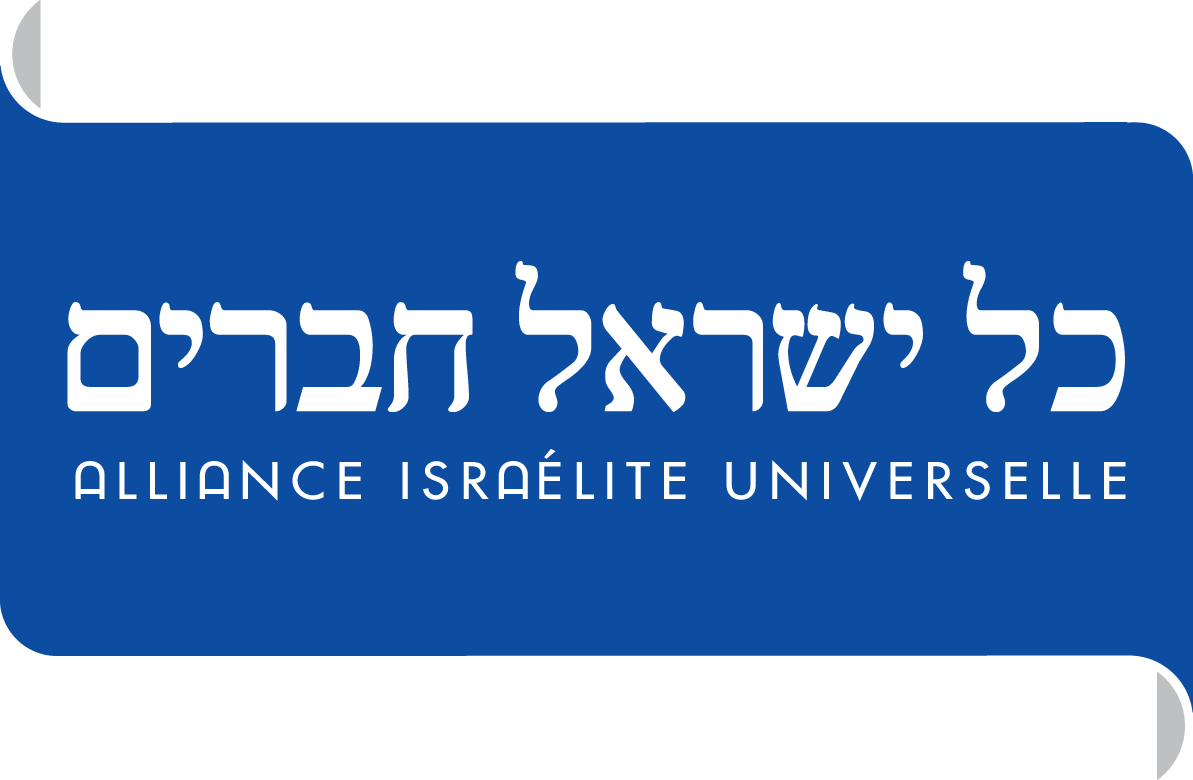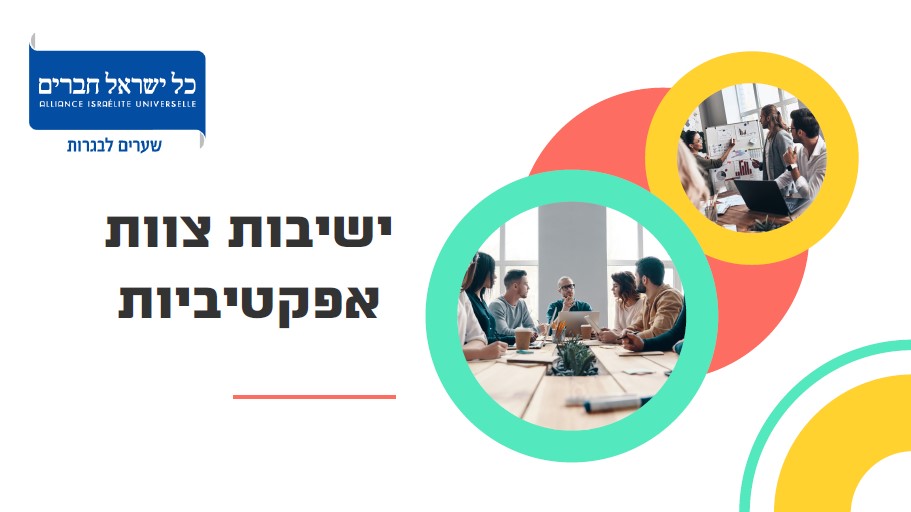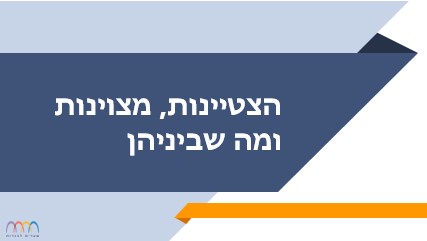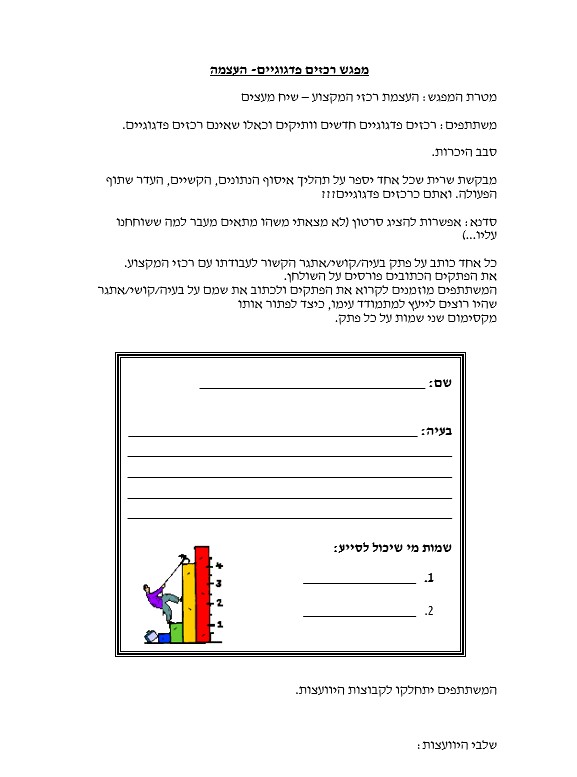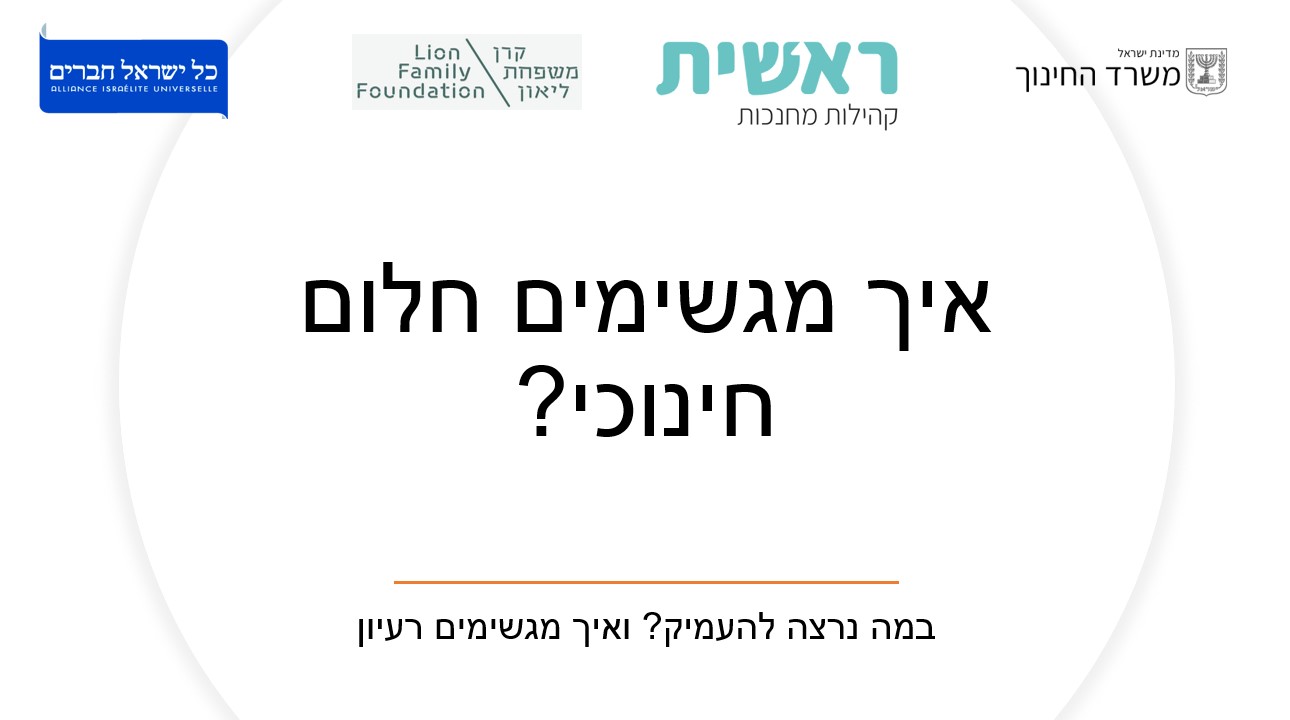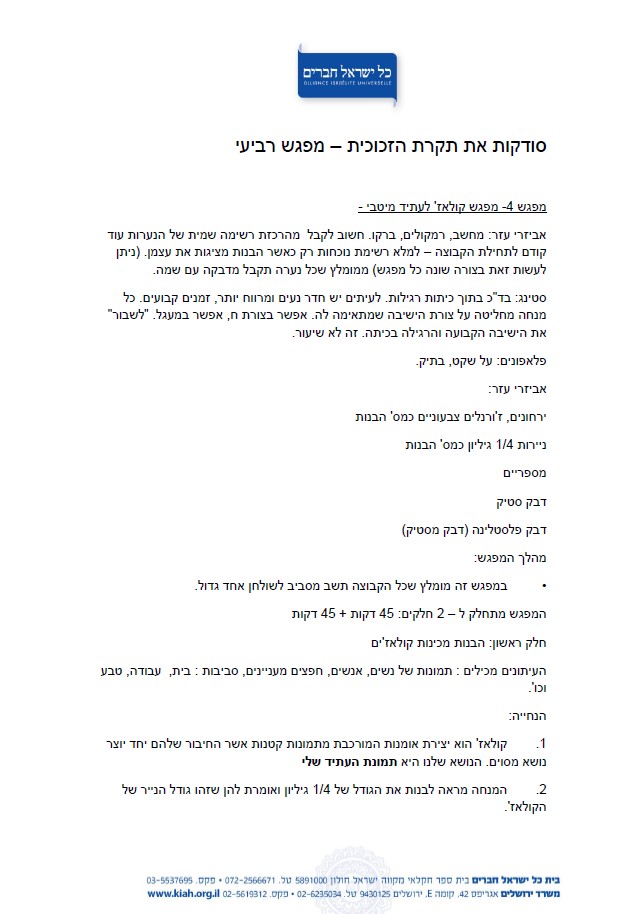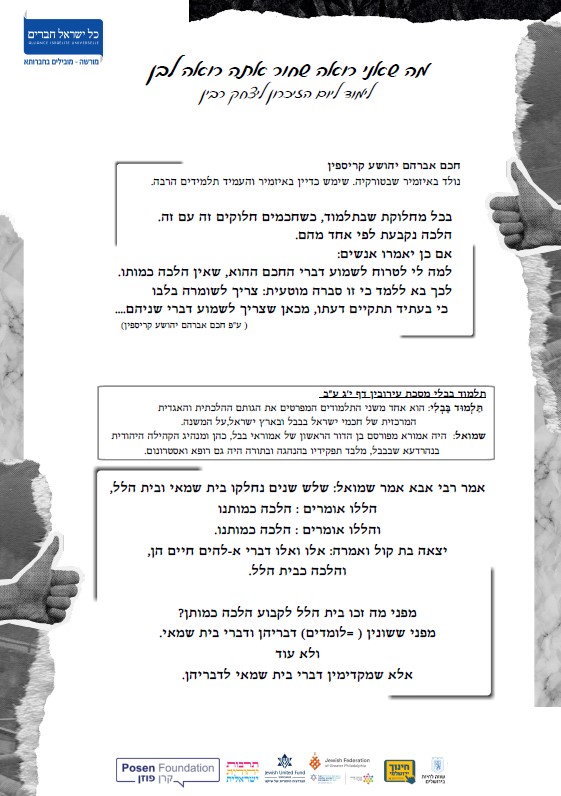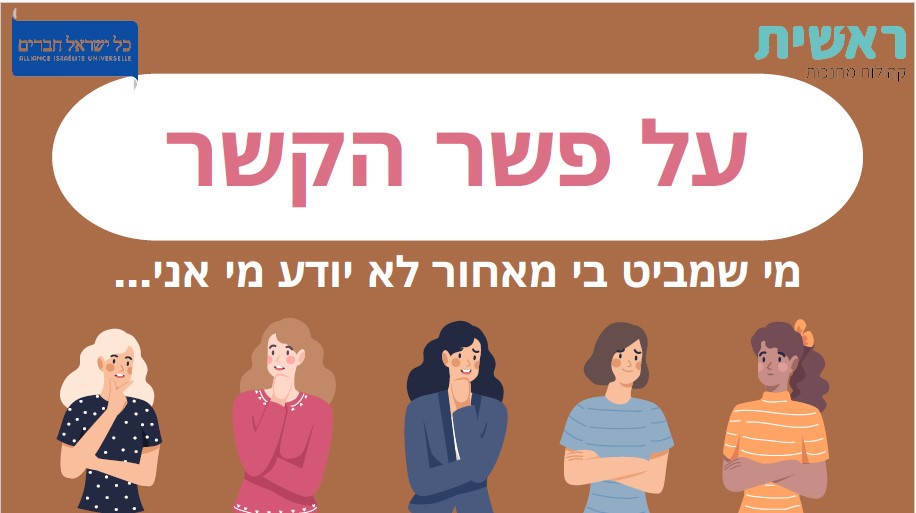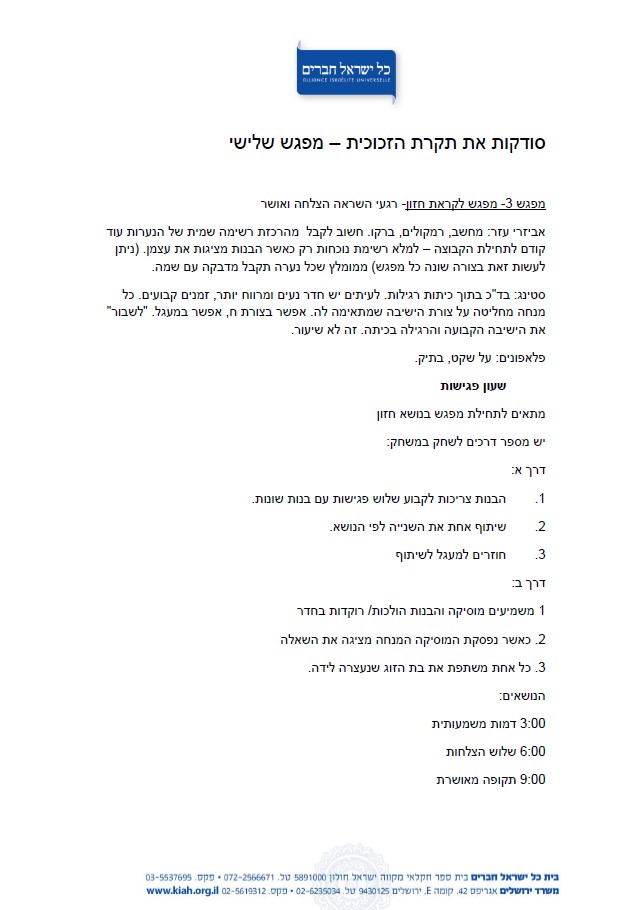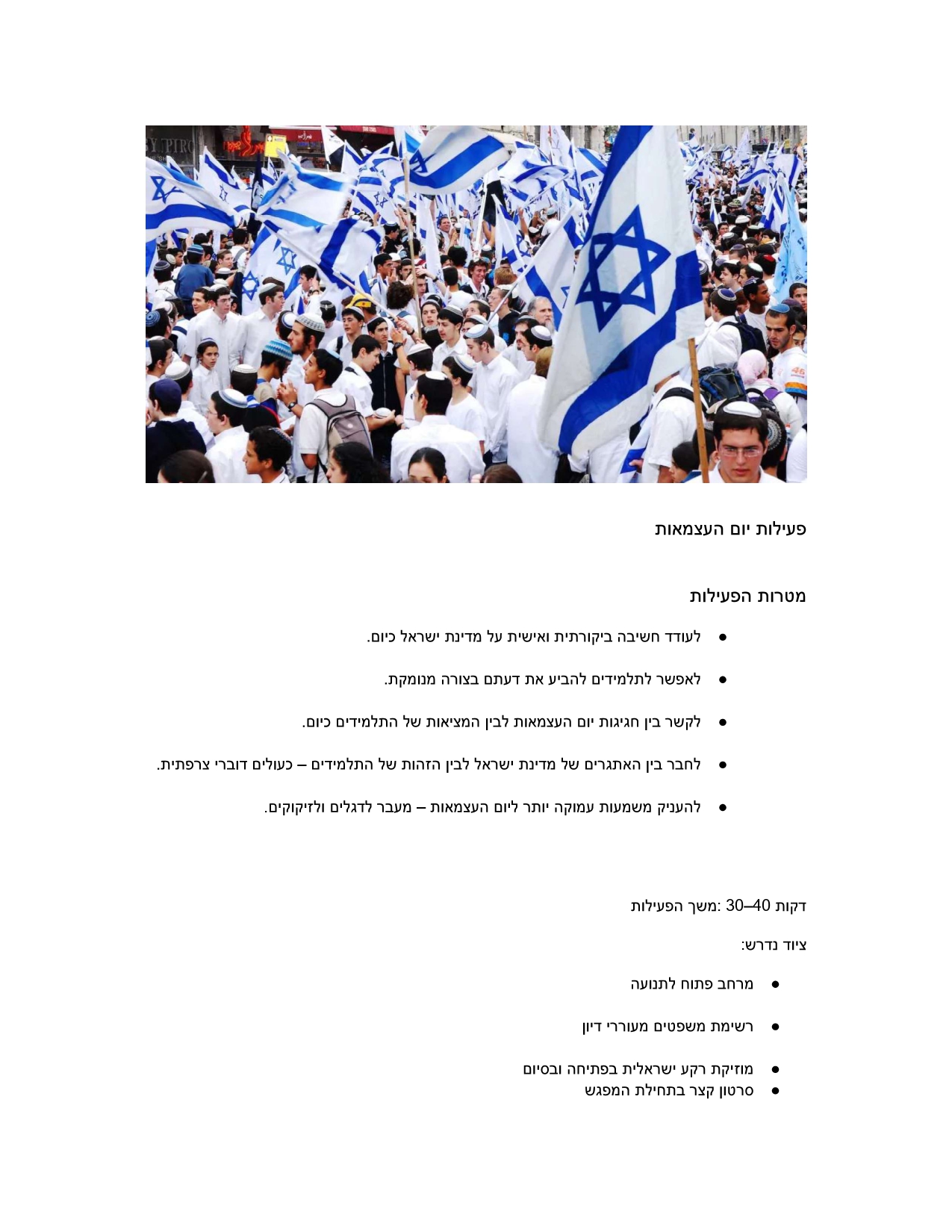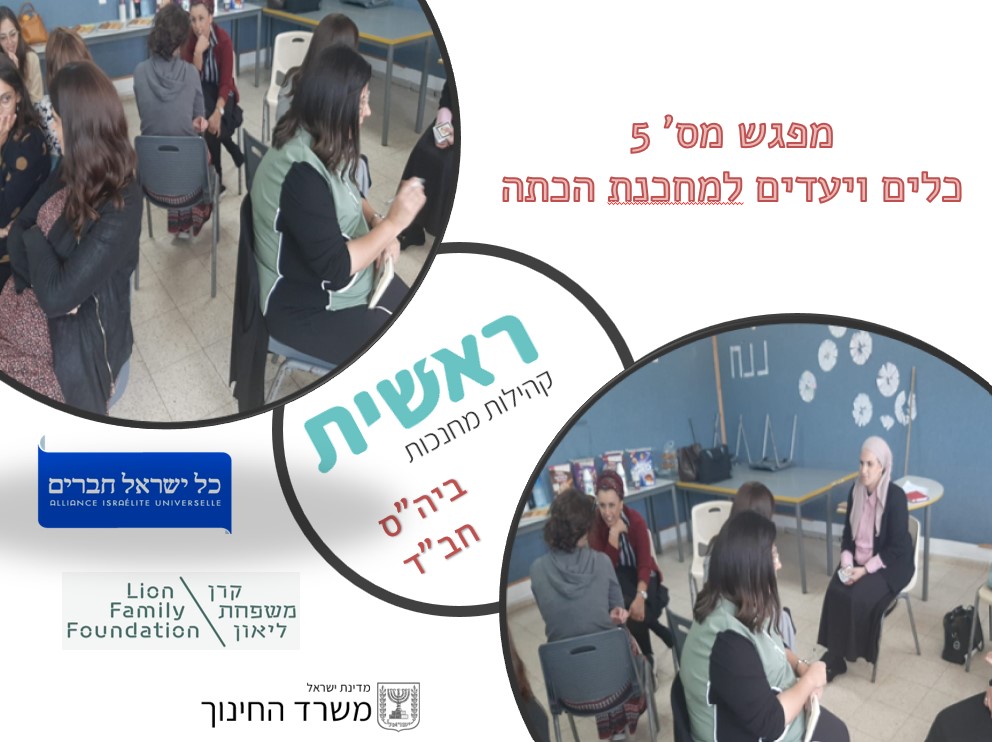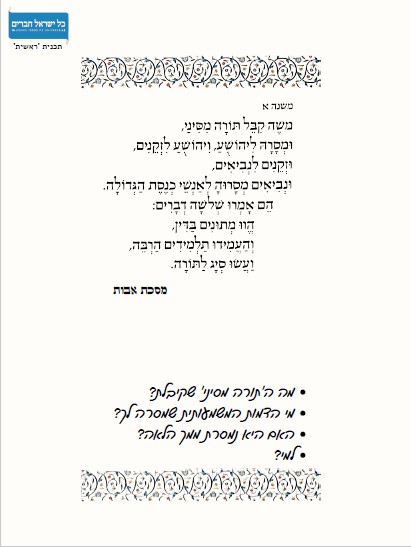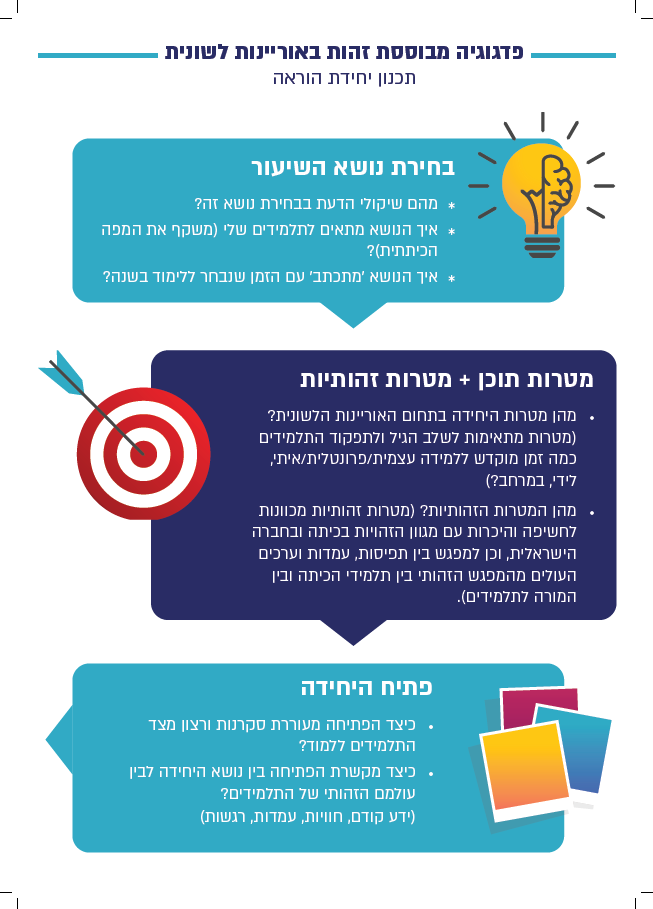Facilitators and coordinators
Sort by topic
Effective team meetings
Lesson plan
Designed for:
Teachers
- carrier: Gateway to Graduation
A presentation that aims to emphasize the importance of a professional team meeting, while addressing the challenges and providing tools for conducting an effective meeting. During the meeting, there will be a brainstorming session with the pedagogical coordinators on the subject of effective team meetings, while attempting to reach insights. The questions are also relevant to the team of professional coordinators – the discussion and tools offered at the meeting will form a platform for a meeting with the professional coordinators so that they can hold effective team meetings.
Excellence and distinction
Lesson plan
Designed for:
Teachers
- carrier: Gateway to Graduation
The value of excellence is one of the central values in educational work throughout Israel, friends. A variety of presentations and lesson plans deal with the meaning of the value, identification, tools and activities on the subject.
Empowerment
Lesson plan
Designed for:
Teachers
- carrier: Gateway to Graduation
An activity set for coordinators designed to empower and strengthen a sense of competence in preparation for the activity.
How do you fulfill an educational dream?
Teacher training
Designed for:
Teachers
- carrier: Reshit
The goals of the meeting are to provide the educator with a model for realizing an educational dream, to map her roles and to choose the topics for the annual work. This meeting will examine the many roles of the educator and her level of satisfaction in each of the areas. Later, there will be work in teams to focus on topics and goals for this year. Finally, learning the 5 keys – a model for starting an idea and turning it into reality.
Future Picture Meeting
Lesson plan
Designed for:
Upper division
- carrier: Sodkot
Lesson plan on the topic of an optimal future picture.
Rabin Day
Lesson plan
Designed for:
Middle school, high school
- carrier: Morasha
A study and activity program surrounding the Rabin Assassination Memorial Day. A discussion on patience and tolerance, different perceptions of reality, and dealing with controversy.
Personal contact with students
Teacher training
Designed for:
Teachers
- carrier: Reshit
Principals and teachers must be learners themselves. They must discover what children like and value, what brings them pleasure, what worries them. They must also learn about the cultures and countries of origin of children and families, and how they define themselves. Principals and educational teams must learn to respect a wide variety of families and family formations and train themselves to suspend judgments, biases, and assumptions. This session deals with the principles of communication with students and the importance of getting to know them deeply.
Moments of Success and Inspiration Workshop
Lesson plan
Designed for:
Upper division
- carrier: Sodkot
A lesson plan on moments of success and inspiration.
Independence Day Activities – Hebrew and French
Lesson plan
Designed for:
Middle school, seminaries
- carrier: Israeli Jewry, leaf
Independence Day activity set. The activity is intended for students immigrating from France and includes an opening activity, discussion questions, and a concluding quiz. This set has a Hebrew and French version.
Setting personal goals for the classroom teacher
Teacher training
Designed for:
Teachers
- carrier: Reshit
The goals of the meeting are to focus on goals, to become familiar with practices, and to acquire practical tools to achieve the goals. This meeting will deal with setting goals for each classroom teacher for her own classroom. We will do this using projective tools from the world of visual images. At the beginning of the meeting, we will get into the atmosphere by choosing a tool from a tool sheet that the teacher feels she needs for the coming week in her classroom and explain why – this is how we get into the subject, it will be both a little funny and a little liberating. After that, we will really dive in with the help of drawing to define the personal goals of each classroom teacher for her classroom. And finally, we will get to know the practices that Keren Leon, the head of the primary program, defines for classroom teachers and discuss them.
Identity and Excellence
Teacher training
Designed for:
Teachers
- carrier: Reshit
Schools and educational teams are at the forefront of the struggle for children’s futures, and they carry within them one of the greatest gifts they can bestow upon them – connection. Educators have the power to create meaningful relationships that grow from seeing the child as a person, as a whole person made up of several parts; a relationship that is founded on a deep and authentic familiarity with the children’s cultural and family context, one that does not just say that it believes they can – but conveys this message in overt and covert ways from the moment the children enter school until they leave it at the end of 12 years of study. This encounter deals with the connection between the student’s identity and their level of excellence, ability and achievement.
Linguistic literacy indicator
activation
Designed for:
Teachers
- carrier: Mesharim
Identity-based pedagogy indicator in linguistic literacy
